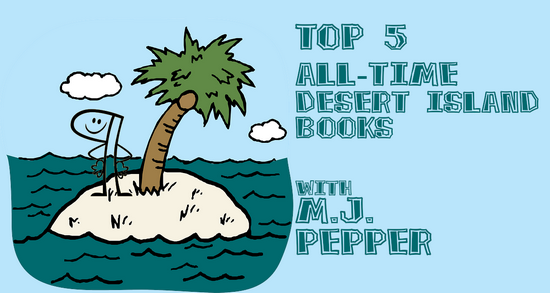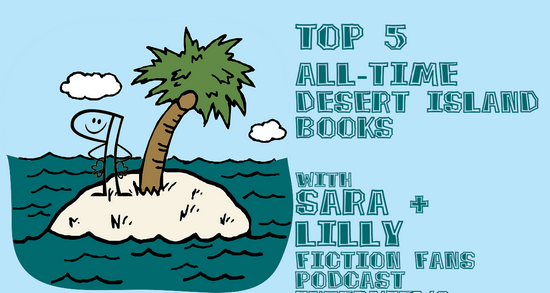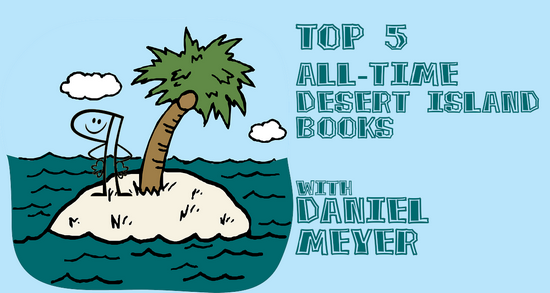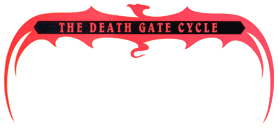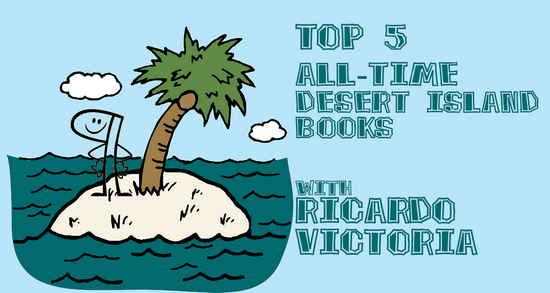
Ricardo Victoria’s bio on his website is great to read, but I don’t want to rip the whole thing off for this–but do go read it.
Here’s the portion of it that seems the most applicable:
He’s “in Toluca, [Mexico] living with his wife and his three dogs where he works as an academic at the local university. He has short stories featured in anthologies by Inklings Press and Rivenstone Press. In fact, he was nominated to a Sidewise Award 2016 for the short story “Twilight of the Mesozoic Moon”, co-written with his arch-nemesis, Brent A. Harris . He has also won a local contest for a fantasy short story during college. But hey! That one doesn’t count, does it?
“You can find his rants and other work– both fiction and opinion pieces here and from time to time on the Altered Instinct blog, www.alteredinstinct.com.
Tempest Blades, his first novel, was published in August 20th, 2029; by Shadow Dragon Press.”
He can be found on:
His Website: https://ricardovictoriau.com
Twitter @Winged_Leo
Facebook: Ricardo Victoria – Author
Bluesky: https://bsky.app/profile/wingedlion.bsky.social
Things got away from Ricardo (as things are wont to do), so he asked me to reprint this list from his friend’s blog, Altered Instinct, where it appeared as: BOOK FEVER: Ten books that have stayed with me over the years – the awesome, funny Ricardo Victoria edition. (I did some minor editing)
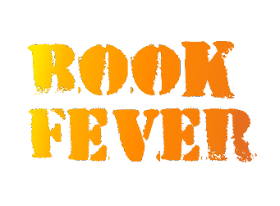
Well, Stephen published a list of the top ten books that touched his heart (or whatever passes as such because I doubt he is mortal or even human, but I digress). So here is my list. Some would say it is a very eclectic list and certainly is not complete (there are a few novels that should be here but is a top ten list not a top fifteen and of course at least three to four non-fiction, historical books). This might explain why my mind is such a mess and why I write what I write. So in no particular order, here is my list.
The Dunwich Horror, by H. P. Lovecraft.
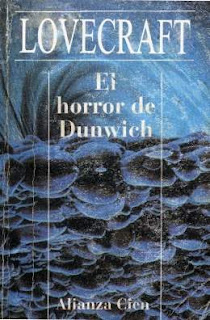
It’s a well-known fact amongst friends and some strangers that I’m a big fan of Lovecraft (the writer if not the person) and that I have in my personal collection almost all the stories he wrote, including some really obscure ones. I have to admit I don’t have many of the Dream cycle though, as I didn’t find them that engaging. I even have his book on how to write horror stories (Bone Peyote is a child of that book). So choosing from that selection one book is a rough task. There is a compilation published in Spanish about his precursors, his more important works and his successors, but I got that book because I was familiar with Lovecraft. Thus the honor goes to this little story that not incidentally was the first book (very thin book) I bought as a kid with money from a scholarship, basically money I earned when I was eight. Yeah, an eight-year-old kid reading Lovecraft, think about that and despair (my parents were just happy I was reading books and not watching cartoons). It was as well the first non-fiction book I read, as until then the only thing I read was books about Greco-Roman history. I still have that book. I never tire of reading that story as it was the one that made me want to be a writer and to this day captivates my mind.
I am of Irelaunde: A novel of Patrick and Osian (A Celtic Legend in Spanish) by Julienne Osborne McKnight
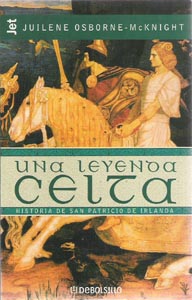
This book I think, is not well known, which is a shame, it deserves more love as is a beautiful retelling of the live of Saint Patrick at the start of his mission, having as companions other famous Irish patron saints and more important to the story, Osian, the son of legendary Irish hero Fionn McCumhaill (or for Americans, Finn McCool). While Patrick goes around learning how to reach the heart of the Irish, Osian narrates the story of his father and draws parallels that help Paidraigh to understand the people he has to preach. It’s epic. I found it in a discount pile at a local supermarket and finished it in two days. Why I bought it? Because I suspect that in one of my past lives I was Irish and by that point in my life, during my undergrad studies I was trying to get into celtic lore. I found it also at the time when I was undergoing a crisis of faith and started playing D&D, which it turns, inspired the creation of my first Player Character, a ranger/monk/fighter by the name of Fionn who was the seed to grow into the main character of my novel in progress Tempest Blades: The Withered King. Fun fact, when I moved out to UK for my PhD, this was the only book from home I took with me. So this particular copy has some serious air miles.
Guards! Guards! By Terry Pratchett
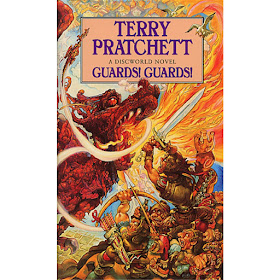
It wasn’t the first Discworld book I bought (that one was Mort), nor the second (that one was The Colour of Magic), but certainly was the one that has stroke a chord since my high school days. In that time in Mexico, it was pretty hard to get any science fiction or fantasy books, hell even obtaining a copy of Lord of the Rings was difficult. It was just luck that I found the Discworld series being translated (in a messy order by the way) into Spanish. Guards is the book where I think Pratchett found his groove and style, where the footnotes (which Brent hates but I adore) are as interesting as the main story and that gives you a better picture of the setting. It was also the first book I read until then that took established tropes like the rightful heir to the crown and turned it upside down and that mixed genres, as it is at its heart a noir detective story which just happens in a fantasy setting. Personally I think it is also the best book of the Nightswatch cycle on the strength of the cast ensemble (specially Vetinari), whereas the main character of the setting is and will always be Death. This book also taught me about writing for fun and writing fun stuff even if the odds are stacked against the character. In other words, this book was to me what Hitchhikers was to many others.
Star Wars Episode III Revenge of the Sith novelization by Matthew Stover
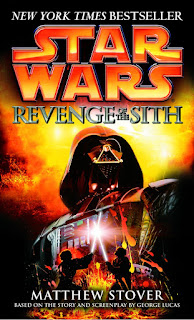
Ok I know that most people deride the Prequels as they are not that good movies (Attack of the Clones is the worst), but I always maintained that it was not due to the ideas portrayed in them but because Lucas, for all its creativity, is a lousy director. This book is proof of it.
Usually, no one pays attention to movie novelizations, but you should seriously read this one. In the masterful hands of Stover, the story of Anakin’s fall takes new dimensions as it is better fleshed out and you can see the logic behind his acts. Here, he is not a bratty kid, but a weary warrior afraid of losing his dear ones and desperate to find a way to protect them. You can also as well get a better, deeper insight into Obi-Wan’s journey and how that allowed him to be more than a match to Anakin. Skywalker might have been the chosen one but Obi was the true Jedi and hero here.
The fights are expertly narrated and the insight you get into the minds of several characters gives you a new dimension the film doesn’t. I know some people find upsetting or old fashioned the omnipresent third person narrator, that switches from one character’s point of view to another as the plot demands (it is after all an adaptation of a movie), but actually I love it and I admit it was influenced my writing style more than it should. You seriously need to give it a try now that Star Wars is back. This book as well holds a dear place in my heart: see, when I just move out to UK for my PhD, I had just 50 pounds in my pocket for the whole month until my scholarship started to arrive, it was my birthday and the nice folks at the GameSoc of Loughborough University had invited me to London to take a walk (and search for a new AC/DC adaptor for my laptop that almost burned a few days before). This book was on offer at Forbidden Planet and I decided to use part of that money to buy it to myself as birthday present. To this day, I have never regretted not eating anything for the rest of the trip and that book has been read at least three times (right now it is on the fourth round). My copy is tattered, but I treasure it as a memento of those times as well as the book that helps me to get writing when I’m stuck with writer’s block.
Jurassic Park by Michael Crichton
This was my first science fiction book, even if I know that Crichton was at best a luddite for lack of a better word. I loved it so much that I read it in one afternoon and then reread it several times that week (to detriment of my grades). It’s the only book I have that has exploded and had to be repaired. The idea of science reviving dinosaurs mixed with the amusement park and chaos theory was an eye opener on how to write consequences to the character’s acts.
I still have vivid dreams about parks like that to this day. It helped I guess that even if I was in high school I had a good grasp on genetics (thanks to my mom). The only thing I have never liked was the abruptness of the end and only until I learned about Crichton views on science that it dawned on me why he decided to the end the book that way (he doesn’t care about what happens to the characters, he just wanted to make a point on science ethics).
The sequel is bad, to be honest, albeit better than the second movie and Ian Malcom is a great character both in book and in film. If I could, I would have written a series of novels about Ian Malcom snarking his way out of science-related nightmares; always with the voice of Jeff Goldblum in my head (Jurassic World needed more Goldblum). Man, this book made maths and mathematicians cool to a teenager that despised maths. That’s how badass this book it is.
The Silmarillion by J.R.R. Tolkien
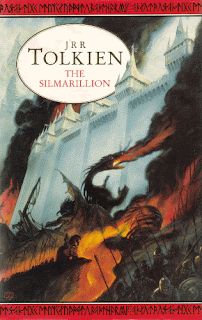
Full disclosure: when I was a teenager I loved Lord of the Rings and read it the first time during Christmas in three days (one per book), as it gave me something to chat with someone who would become one of my best friends and started me into serious fantasy literature (it also made me willing to spend my allowance in Realms of Fantasy, a great magazine back in the 90’s that helped me to learn English in six months and that now is sadly gone). Nowadays I can barely pass the first chapter as LOTR really bores me. Yeah I know, blasphemy, but hey, it’s my list.
Now the Silmarillion; that I can read and read again. For years, as a Tolkien novice in a country that barely reads at all, this book was an urban legend, known only through whispers: the legendary bible to the LOTR ‘modern’ world history. What secrets hold in its pages? What mysteries would clarify? Well, once I got my hands on it at a book fair all became clear: a modern equivalent to the epics of ancient cultures such as Gilgamesh. It is beautifully written and one of the uppermost examples of worldbuilding done right. I know in my heart there is no way someone will make a movie about this because there is so much lore here that can compete with our history books. The level of complexity and detail that reaches can only speak of a man that knows his setting as well or even more as his characters and loves to talk about it like a gardener tends his garden with pure a unadultered love.
This book has it all, foundation myths, intrigue, revenge, love, hope, redemption. It is like Game of Thrones before Game of Thrones (Feanor is a seriously damaged dude, whose rash decisions have an impact on the world even aeons later). It might be old school in terms of Manichean views on good and evil, but still a superb book. While LOTR and to a lesser extent the Hobbit are the flagships of Tolkien, I think the Silmarillion is the true proof of his genius as writer and founding father of the modern fantasy literature. If someday I write an epic origin myth story, it will be thanks to the inspiration the Silmarillion has provided me.
The Queen of the Damned by Anne Rice
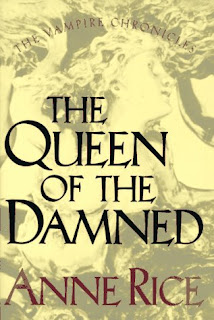
Unlike my wife, I’m not a big fan of Mrs. Rice (albeit my wife doesn’t like her most recent output, not since Rice went all religious on us). That said, I find her earlier books fascinating, particularly Lestat, Menoch the Demon and The Queen of the Damned. I choose the latter as the entry for the list despite the fact that in my head canon, these three are almost a single book that starts from a simple premise, a new vampire becoming a force to be reckoned on his society to an epic tale sprawling the biblical times.
It provided at the time with a novel origin for the vampires (which I think latter informed the original Vampire the Masquerade games) intermixed with an end of the world scenario. It was like peering at the rabbit hole and trying to find how deep it would go. I admit that the tale of the twins and the Canaanite mythology related on the books informed the first approaches to what is now the cosmogony of my novel’s setting; as they are full of that essence I call the life of a myth, the creation of gods by men. I don’t care much for Lestat, but I care for the curious creatures that dwell in what he calls the savage garden. Sad fact: this is the only book of this list that has been lost from my collection. Luckily my wife has pretty much all the books of the old Vampire Chronicles so I can read them again.
Alexander by Valerio Massimo Manfredi

In my original list this series of books (it’s a trilogy or a single book split on three, kinda like LOTR) this wasn’t an entry, that place was going to Kitchen Confidential by Anthony Bourdain, but then I re-examined as this list is not only of books that stroke a chord on me, but as well has influenced me as writer. And this is why Alexandros is here.
As a child, I was an avid reader of Greco-Roman history, as mentioned before, so this book as was a perfect fit for those budding interests. It weaves a thrilling narrative on the life of the only young adult that puts on shame any achievement by any modern young adult. Yeah you can invent Facebook, but can you conquer half of the world with an army loyal to the death? No, it can’t be done if you are not Alexander the Great. When I read the books I didn’t care about the whole plot about Alexander musing if he was son of a deity. I cared about Alexander and his tight pack of friends taking on the world, knowing that they were destined to betray each other as ambitions reached their peaks once the great man was gone. I cared about the legend made man and to a certain point his master trying to uncover the mystery of his father’s assassination. Do you want to write a larger than life hero that is too human for its own good? Then you go and read about this book, which incidentally also does a superb job explaining the politics and the military tactics of the time and Alexander’s in particular.
I, Robot by Issac Assimov
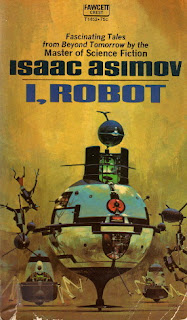
This was my second science fiction book and my first about hard science fiction. I have heard of Asimov from three sources: his book on Greek history that I devoured, his book on dinosaurs that explained clearly the evolution into birds and mammals (which would help me to create one of the races of my novel) and one of my best friends, Pedro, who also participated on the Tales from the Universe anthology.
I have heard a lot about the Foundation Trilogy. This book was a perfect fit at the time. I liked how small short stories were interlinked to provide the reader, through the eyes of three characters that got butchered by Will Smith years later, a view on how technology was changing humankind, from new mining operations to FTL space ships. I know somehow it got later linked to the other novels by Asimov to create a single universe, but I liked the simplicity of the narrative device and the questions posed. I think to that it is because of this book that at times I tend to write a lot about technobabble through my characters to explain some feature of my setting, be it magic or science.
Fun fact: I argued with my literature teacher at the time to let me write my final essay for his class on this book instead of the awful book of the Perfume suggested by one my female classmates the guy fancied and that had decried Dracula as trash. After a grueling process of negotiation, I was granted my request and promptly forgot about the essay until an hour before deadline. It was the time I have wrote more words per minute (I actually damaged some of the keys of the keyboard) but I finished the essay with one minute to spare, print, run and deliver.
The Acts of King Arthur and His Noble Knights by John Steinbeck
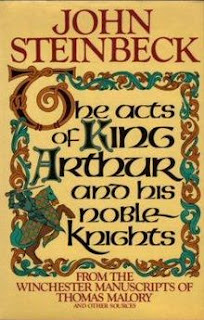
This is the last book of my list and a weird one. I know that now there are more retellings of the Arthurian cycle than any other; from the classics of Mallory and Troyes to modern fiction. But if someday I have kids that want to read about King Arthur, this would be the version I would read them (sans the sex scenes of course). For starters is by one of modern literature giants, so it is a master class on style and prose. Second, it is neither pandering nor crude; it has the perfect balance between myth and plausible reality. Third, it is not flowery but neither barren.
The characters are flawed, but relatable, while keeping their mythic aura. It is a tragedy that nonetheless leaves you with hope for the future as even the lesser knights are fleshed out and you get to know more of the less known members of the Round Table. This is not a book about Arthur, it is a book about Camelot and what Arthur meant (you can see it in the section about Ywain, his nephew and the knight of the white lion). If I have to describe it with one word that would be: perfection. If you are a fan of Prince Valiant, then you have to read this book. It is also a perfect gateway book to introduce someone into fantasy literature. Some of the knightly ideas I used for my characters on my novel stem from this book.
Honourable mentions: there a few books I left out of this list as I mentioned before, so I will do so here in some brief coda:
–World War Z by Max Brooks. I hate zombies. I hate zombie stories and yet I love this book that I can’t stop recommending. It has it all you want from a serious zombie story, not just the thrills and the scares. I have read it three times and still scare me. And if you are into audiobooks you have to get the one where Mark Hamill voices some of the characters.
–Kitchen Confidential by Anthony Bourdain. Because not all in life is fiction, I like to read biographies and non-fiction from time to time. This is an enthralling, fun book (except for one chapter) that explains much of our modern fascination with the chef star that pops on tv and movies. I think that Bourdain is a much better writer than chef and he is a pretty great chef.
-Soul Music by Terry Pratchett. Choosing a book by Pratchett is hard, choosing one of the Death centered ones is even tougher (Hogfather is a riot, Reaper Man is epic), but I think Soul Music is a better entry not because is a better book, Reaper Man is better; but because this one is touching. I mean it makes an admittedly funny yet abstract entity like Death a touching, fleshed (pun non intended) character through the eyes of his granddaughter and a wannabe rock band. This book made Death my favorite character of Discworld. He plays a mean guitar riff.
So there we go, ten books that have not only lingered on my head, but have become major influences on my writing, from style to concepts and structure. I would like to hear about your opinions, comments and lists. Comment below and let me know, we might share common tastes.
Be sure to check out Ricardo Victoria’s books! I haven’t had the chance to read any yet, but I’ve only heard good things about them, you should join the chorus!
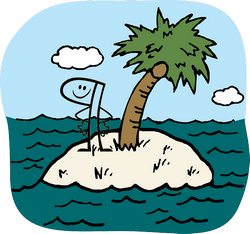
Image by Clker-Free-Vector-Images from Pixabay


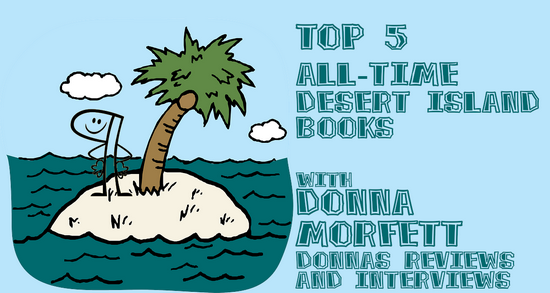

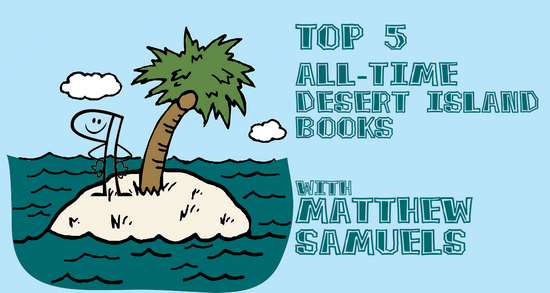
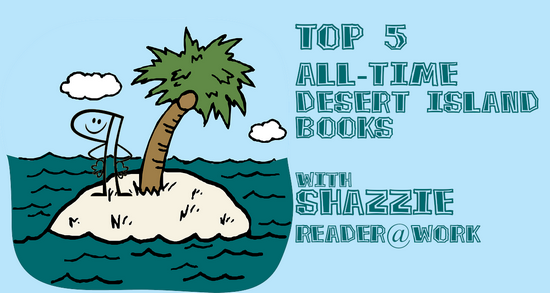
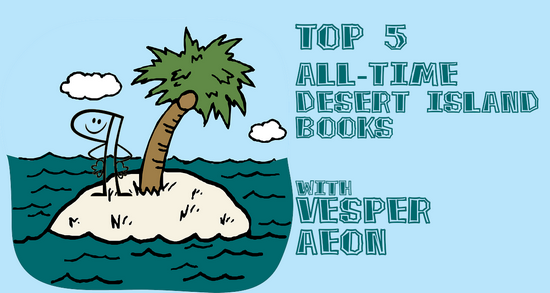
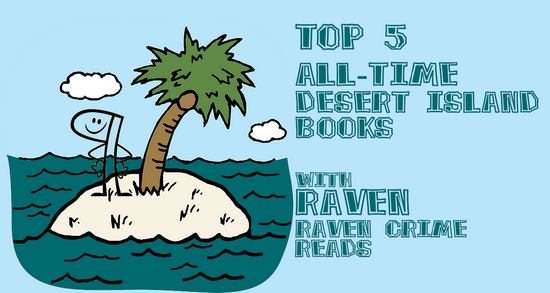 Raven was kind enough to provide their own bio for me, so I’ll just shut up and let them get to it.
Raven was kind enough to provide their own bio for me, so I’ll just shut up and let them get to it.